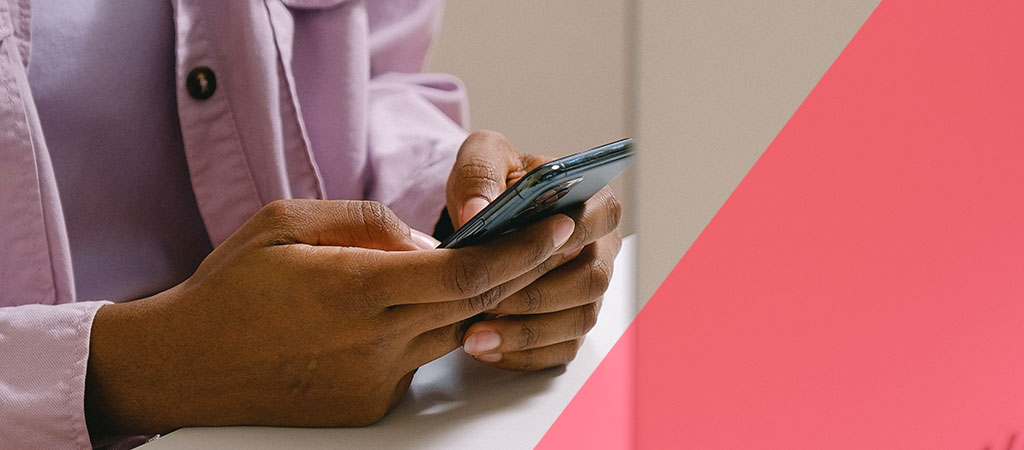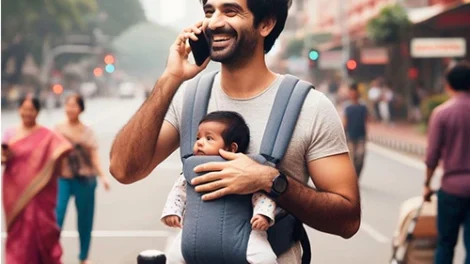How often to text someone you’re casually dating is tough.
You don’t want to seem overly desperate, but you also don’t want to leave them wondering if you’re interested.
What’s the ideal texting frequency?
First, analyse texting frequency’s causes. Communication styles and preferences matter. Some people text incessantly, while others choose to communicate less.

Texting frequency depends on your interest in the other person and the relationship stage. To get to know each other, you may text more in the beginning. As you spend more time together, you may text less.
Knowing communication styles is essential. Texting, calling, or in-person communication are preferred by some. Maintaining a healthy balance requires identifying and adapting to the other person’s communication style.
In early dating, start discussions without bombarding the other person. Communicating is crucial, but don’t appear desperate.
Table of Contents
As you spend more time together, texting may decrease in established relationships. To avoid miscommunication, state your limits and expectations. Maintaining a strong relationship requires balancing texting and other communication.
There’s no set rule for casual dating texting frequency. Communicate, determine communication preferences, and set boundaries that work for both parties.
Finally, casual dating texting frequency is tricky. Maintaining a good relationship requires recognising texting frequency, adapting to the other person’s communication style, and setting boundaries and expectations.
Related: Top 5 Most Common Relationship Mistakes [And How to Fix Them]
Factors That Influence Texting Frequency
Many factors affect casual dating texting frequency. Knowing these factors can help you communicate well with others.
Texting frequency is heavily influenced by personal preferences and communication methods. Some people text incessantly, while others choose to communicate less. Maintaining balance requires identifying and adapting to the other person’s communication style. Ask if you’re unsure of their tastes.
Work and school schedules can also affect how often we text. A busy work or school schedule may leave less time for texting. Be understanding if they can’t text as much as you’d want.
How often you text also depends on your social life and other obligations. If the other person is busy with work or social life, they may not text as much. Respect their other responsibilities and don’t pressure them to text more.
Interpersonal interest also affects texting frequency. To get to know someone, text them more. If you’re not interested, you may text less.
Lastly, how often you text depends on where your relationship is at. To get to know each other, text more in the beginning. Texting may lessen as you spend more time together.
In conclusion, personal preferences and communication methods, job and school schedules, social life and other commitments, amount of interest, and relationship stage affect casual dating texting frequency. Understanding these elements and adjusting your messaging frequency might help you maintain a healthy communication balance with the other person.
Related: Dating in the Digital Age: How Technology is Changing the Way We Date
Understanding Communication Styles
Casual dating relationships depend on communication styles. Understanding communication styles helps sustain a healthy relationship.
Communication styles can be broadly categorised into three types: passive, aggressive, and assertive.
Passive communication avoids conflict and expresses needs and opinions indirectly. Verbal or physical violence is aggressive communication. Assertive communication entails respectfully expressing needs and viewpoints.
Casual dating requires learning the other person’s communication style. Passive people may not voice their demands and thoughts. To comprehend their perspective, actively listen and ask questions.
Set boundaries and don’t tolerate verbal or physical aggression from others. To deescalate, communicate assertively and respectfully.
Communication flows better when both parties are forceful. Assertive communication entails respectfully expressing needs and viewpoints. To keep communication balanced, speak clearly and listen.
Another important aspect of communication styles is the preferred mode of communication. Some people prefer phone calls, while others prefer texting. Maintaining communication balance requires identifying and adapting to the other person’s chosen method.
Finally, casual dating requires communication style knowledge. Maintain a healthy communication balance with the other person by understanding and adjusting to their communication style, talking assertively and respectfully, and determining their preferred communication method.
Texting Guidelines for Early Stages of Dating
Early dating is exhilarating but nerve-wracking. Avoid coming on too strong or scaring the other person when texting. Here are some texting guidelines for the early stages of dating:
- Firstly, keep it light and fun. Avoid deep issues initially in dating. Discuss lighthearted things, including your passions and favourite movies. Remember, early dating is about getting to know each other and having fun, not solving life’s issues.
- Second, limit texting. It’s crucial to keep in touch, but don’t text too often. Start a discussion, but don’t keep messaging if they don’t respond. Give them time.
- Thirdly, don’t be too eager. Even though it’s important to show interest in the other person, being too eager can make you seem desperate or clingy. Avoid many texts and praises. Instead, ask questions and pay attention.
- Fourth, respect their time and space. If they’re busy, don’t take it personally. Don’t force them to reply if they’re uncomfortable.
Avoid sexting and explicit messaging early on. . Leave the sexting for later.
In short, early dating texting recommendations include keeping it light and entertaining, being careful of texting frequency, avoiding being overly eager, respecting their time and limits, and avoiding sexting or explicit messages. Use these rules to keep communication balanced and avoid coming on too strong in the early days of dating.
Related: 7 Secrets to a Happy Marriage You Won’t Learn in Therapy
Texting Guidelines for Established Relationships
Texting remains important in long-term partnerships. To avoid relationship stress and conflict, texting should be regulated.
Established relationship texting guidelines:
- First, discuss texting habits. Some enjoy frequent texting, while others favour infrequent communication. .
- Second, don’t text sensitive issues. Texting is convenient but might cause miscommunications. Keep sensitive chats in-person or on the phone.
- Third, don’t text during business or family meetings. Excessive texting can be a distraction from living in the moment.
- Fourth, consider text tone and wording. Clear communication is crucial since texts can be misconstrued. Sarcasm and passive-aggression can wound and cause conflict.
- Finally, avoid risky habits like texting while driving. Texting while driving causes accidents and injuries.
In final result, established relationships should communicate openly about texting preferences, avoid using texting as a primary mode of communication for important or sensitive topics, avoid texting during important or sensitive events, be mindful of tone and language in texts, and avoid texting while driving or doing other dangerous activities. Use these suggestions to maintain a healthy communication balance in a relationship.
Dealing with Texting Anxiety
Dating often causes texting anxiety. Overthinking, worry, and relationship problems can result.
Texting anxiety tips:
- First, acknowledge your sentiments. Not ignoring anxiousness is crucial. Recognizing your anxiety helps you manage it.
- Second, try to identify the root cause of your anxiety. Is there a connection? Is it rejection or judgement anxiety? Your anxiety’s cause can help you manage it.
- Third, take a break from texting. Disconnecting from technology can reduce anxiety. Stop texting and do something fun.
- Fourth, be conscious and self-care. Meditation and deep breathing can alleviate stress and anxiety. Exercise and family time can help manage anxiety.
- Finally, talk to your partner. Discussing anxiety with your partner is crucial. By discussing your anxiety, you can find ways to manage it.
Texting anxiety affects dating relationships. You may manage your anxiety and improve your relationship by acknowledging your feelings, understanding the reason of your anxiety, taking a break from texting, practising mindfulness and self-care, and talking to your partner.
Related: Am I Ready For a Relationship? Take Relationship Quiz to Find Out!
Setting Boundaries in Casual Dating
Casual dating requires setting limits to ensure compatibility and comfort.
Casual dating boundary tips:
- First, set expectations. Discuss expectations before starting a casual relationship. To do this, you should talk about things like how often you’ll talk, what you’ll do together, and how close you’ll grow emotionally.
- Second, set limits. Set boundaries clearly and assertively. This involves saying “no” when you’re uncomfortable and communicating your relationship demands.
- Third, be consistent. After setting boundaries, stick to them. This helps your partner comprehend relationship boundaries.
- Fourth, respect limits. It’s crucial to set and respect your partner’s boundaries. This involves respecting their wishes and not forcing them.
- Fifth, re-evaluate. Reassessing your limits as the relationship progresses is crucial. This may require another chat with your partner and new boundaries.
Finally, creating boundaries in casual dating ensures both partners are comfortable. Have a healthy, respectful casual relationship by being upfront about your expectations, communicating your boundaries, being consistent, respecting your partner’s boundaries, and being willing to re-evaluate.
The Role of Texting in Casual Dating
Texting is the main form of communication in casual dating.
Texting can affect casual dating in the following ways:
- First, texting can increase enthusiasm. Partners can build enthusiasm for future dates by sending provocative and suggestive messages between in-person dates.
- Second, texting may connect. Casual dating may involve fewer dates than committed relationships. Texting may keep dates connected.
Thirdly, messaging can set limits. Partners can avoid miscommunication by setting limits and clarifying expectations over text. - Fourth, texting shows affection and appreciation. Sweet words and praises can make couples feel loved.
Texting has drawbacks in casual dating. Partners may misread messages or have trouble texting. Partners may also overuse texting and forgo in-person interaction.
Casual dating texting requires balance. Texting and in-person communication should be prioritised. Partners can have a good and enjoyable casual dating experience by being aware of and intentional with texting.
The Impact of Texting on Mental Health
Texting has become a common part of our daily lives, but its effect on mental health is often overlooked.
Texting affects mental health in these ways:
- First, excessive texting can cause tension and worry. Checking and responding to messages can be exhausting, especially when you worry about missing vital information or social activities.
- Second, misperception might cause wrath, despair, or bewilderment. Text messages might misread tone of voice and body language, causing unneeded conflict or upset sentiments.
- Third, responding to text messages instantly might cause guilt and obligation. This can make us feel uneasy and break our focus.
- Fourth, texting social comparison might lower self-esteem. Social networking and texting apps can cause jealousy and inadequacy.
Texting also improves mental wellness. Texting may build camaraderie and support. Texting can also help you find mental health resources.
It’s crucial to consider how texting affects our mental health. Texting limits and digital breaks can lower stress and anxiety. Texting intentionally and seeking clarification and understanding might help avoid misunderstandings and bad feelings. .
Related: Saying Sorry with Style: Creative Ways to Apologize to Your Boyfriend
Final Words
Texting is essential to modern communication, especially in casual dating. Yet, we should be aware of how texting affects our relationships and mental health.
Communication patterns, texting frequency, and boundaries can affect casual dating success. Understanding these characteristics and being mindful about our texting behaviours can help us navigate early dating and build good communication patterns in established relationships.
Texting can also improve or harm mental health. It can foster community but also anxiety and social comparison. We can improve our mental health by being mindful of our texting habits and taking breaks from technology.
Open communication is essential to casual dating. To feel comfortable and valued in relationships, we must convey our wants and boundaries via text or in person.
Use these tips to text-date casually. Keep in mind to be honest, respectful, and aware of how you text, and you’ll be well on your way to having great relationships.
FAQs
1. Is it okay to text someone every day when casually dating?
It depends on the individual preferences and communication styles of both parties involved in the casual dating relationship. Some people may enjoy texting every day, while others may prefer less frequent communication. It’s important to communicate openly with your partner about your texting habits and preferences to ensure that both parties feel comfortable and respected.
2. How long should you wait to text someone after a first date?
There is no one-size-fits-all answer to this question as it depends on the specific circumstances and communication styles of both parties involved. However, it’s generally recommended to wait a day or two before reaching out after a first date to give both parties time to process and reflect on the experience. It’s also important to consider the tone and content of your message to ensure that it’s respectful and aligned with the other person’s communication style.
3. How often should you initiate texting when casually dating?
The frequency of initiating texting when casually dating can vary depending on the preferences and communication styles of both parties involved. It’s important to have an open and honest conversation with your partner about your texting habits and preferences to ensure that both parties feel comfortable and respected. It’s generally recommended to maintain a balance between initiating texting and responding to messages from your partner to avoid coming across as too clingy or distant.
Related: How to Check Loyalty in Long Distance Relationships
4. What should you do if the other person is texting too much?
If the other person is texting too much, it’s important to communicate your boundaries and preferences in a respectful manner. Let them know how you feel and suggest a compromise that works for both parties.
5. Should you text someone you’re casually dating when you’re on vacation?
It depends on the situation and the expectations of both parties involved. If you feel comfortable and your partner is open to it, texting while on vacation can be a good way to stay connected. However, if you prefer to disconnect and enjoy your time away, it’s okay to take a break from texting.
6. How do you know if you’re texting too much in casual dating?
If you find yourself constantly checking your phone or feeling anxious about the other person’s response time, you may be texting too much. It’s important to take breaks and give each other space to avoid overwhelming or suffocating the other person.
Related: Single Dad Dating Childless Woman: Challenges, Tips, and Success Stories
7. Can texting ruin a casual dating relationship?
Texting alone cannot ruin a casual dating relationship, but it can certainly impact the dynamics and communication between both parties. It’s important to maintain a healthy balance between texting and in-person interactions to ensure that the relationship remains strong and enjoyable.
8. What should you do if the other person stops responding to your texts?
If the other person stops responding to your texts, it’s important to give them space and avoid bombarding them with messages. Consider reaching out in a respectful manner to check in and communicate your concerns.
9. Should you text your ex when casually dating someone else?
It’s generally not recommended to text your ex while casually dating someone else, as it can cause confusion and potentially hurt your current relationship. It’s important to focus on your current relationship and give it your full attention and effort.



[…] Related: How Often Should You Text Someone You’re Casually Dating? […]
[…] Related: How Often Should You Text Someone You’re Casually Dating? […]
[…] Related: How Often Should You Text Someone You’re Casually Dating? […]
[…] Related: How Often Should You Text Someone You’re Casually Dating? […]
[…] Related: How Often Should You Text Someone You’re Casually Dating? […]